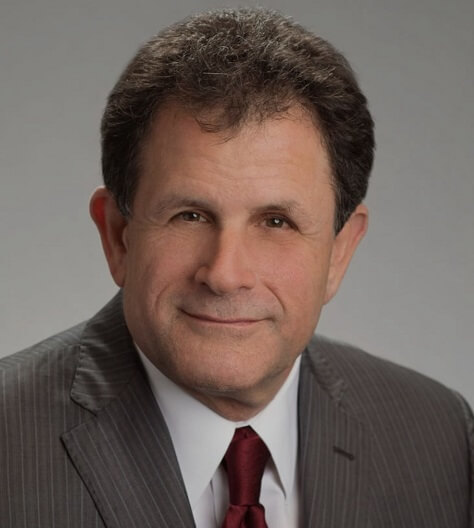Mental Health Issues in Seafarers

Mental health issues in seafarers have always been a concern, but the impact of COVID-19 heightened these issues even more and brought the issue into the open. Crew members faced a multitude of additional stressors while at sea during COVID, including concerns about family at home (especially if they were from high COVID prevalence countries), prolonged length of contracts (up to 400,000 seafarers beyond 8 months at one point), multiple extended contracts, travel restrictions getting home, inability to be present to mourn deceased relatives, forbidden or greatly limited shore leave and financial stressors. These were added to the everyday stressors potentially experienced by all crew such as strained interpersonal relationships in closed quarters with long contracts, threats of violence, sleep disturbances, boredom, low job satisfaction. performance of same job for prolonged periods – especially if high risk positions, and lack of communication with friends and family back home.
Isolation is a key factor in driving mental health issues, as crew members often feel cut off from their support systems. Certain crew may be hindered by cultural and language barriers in seeking help. Additionally, certain cultures have a very high threshold for help-seeking behaviors and this may serve as a barrier to early identification, thereby increasing suicide risk. Studies have shown up to 20% of crew have contemplated suicide.
The issues of high stress, isolation and cultural variations in response to mental health problems must be managed pro-actively at the ship and corporate levels with pro-active program development and interventions. Officers may be as severely affected as crew, limiting their potential for assistance and necessitating shared onboard and shoreside solutions.
In addition to suicide and the direct manifestations of mental health issues, crew may become more prone to mistakes and accidents putting the ship, themselves, and fellow crew at risk.
A very important consideration is that underlying mental health issues such as depression, anxiety, and substance abuse are exacerbated by the conditions at sea. The motivation for going to see must be examined and considered. If it is to escape issues at home, it is rarely, if ever, effective. Isolation from normal social support systems can unmask underlying mental illness. It is not uncommon to see the first manifestations of schizophrenia in a newly hired crew member during the first few months of their first contract and first time away from home. Understanding and managing culturally specific mental health issues is crucial in providing effective support to seafarers.
Mental health screening must be a part of all PEME and REME programs.
AP Companies offers comprehensive PEME services, and we strongly advocate for the inclusion of mental health assessments in the required PEME/REME package. Prioritizing mental health evaluations not only promotes the wellbeing of the crew onboard but also mitigates potential financial and security risks, ultimately leading to cost savings.
The impact of other medical conditions must be considered. The effect of medications used to treat underlying medical problems, the inability to access appropriate medical care and lack of access to chronic medications may all have mental health implications.
The experiencing and communication of psychological stress as somatic symptoms, known as somatization, is a common occurrence among crew members, often leading to physical symptoms that prompt them to seek medical care - psychiatric conditions generating physical symptoms. Complaints of chest pains, headaches, back pain, insomnia, weakness, and tremors are leading cause of returning home crew members seeking medical care and are often due to somatization resulting in complex case management challenges. The somatic complaint must be fully evaluated medically before concluding it is secondary to psychological issues and then addressing those issues.
Utilization of medical resources is a secondary measure that can be employed and can produce a justifiable ROI for mental health services.
COVID-19 also introduced new emotional and behavioral concerns for seafarers, with feelings of isolation, loneliness, and stigma becoming more prevalent. Recovery from the virus may also leave individuals at a greater risk of depression, anxiety, PTSD, cognitive issues and substance abuse, along with other conditions collectively known as “Long COVID”. These post infectious complaints must be taken seriously.
To address these mental health challenges, assistance must be offered to seafarers both on board and through various support programs. Designated mental health liaisons, additional training for captains and crew members, and culturally sensitive support programs need to be implemented to provide the necessary help. Videos, telephonic or online direct interventions and required YouTube videos are all strategies that can be deployed. Organizations such as ISWAN (International Seafarers’ Welfare and Assistance Network) also offer specific training programs and resources directed towards increased social interaction, connectivity, and mental health assistance. Mitigating mental health issues for all crew by increasing positive social interaction and connectivity amongst crew, enhancing the ability to communicate with friends and family at home and developing robust crew wellness programs addressing sleep hygiene, exercise, hydration, and diet, as well as assuring the availability of medications must be part of corporate strategies.
AP Companies' Telemedical services include the availability of psychologists and psychiatrists for both crew members and officers. This provision ensures that the crew has continual access to essential support in their native language while also enabling captains to receive guidance on identifying mental health issues within the crew and effectively managing them onboard.
Accessing mental health assistance through medical case management assistance companies such as AP Companies is a valuable and much needed resource.
In conclusion, the mental health issues faced by seafarers are complex and pervasive, requiring proactive intervention and support from ship and corporate leaders. By addressing stressors, isolation, underlying mental health issues, somatization, and emotional concerns related to COVID-19, the well-being of seafarers can be better safeguarded. It is crucial to prioritize mental health awareness and assistance to ensure the safety and mental well-being of seafarers during these challenging times.
 Dr. Arthur L. Diskin is a graduate of the University of Miami School of Medicine with specialty training in Emergency Medicine and an interest in critical care. He is certified by the American Board of Emergency Medicine and is a Fellow of the American College of Emergency Physicians. He has held leadership roles such as the Past President of the Florida College of Emergency Physicians and is the former Chief of the Department of Emergency Medicine at Jackson Memorial Hospital in Miami, Florida, and Mount Sinai Medical Center in Miami Beach, Florida.
Dr. Arthur L. Diskin is a graduate of the University of Miami School of Medicine with specialty training in Emergency Medicine and an interest in critical care. He is certified by the American Board of Emergency Medicine and is a Fellow of the American College of Emergency Physicians. He has held leadership roles such as the Past President of the Florida College of Emergency Physicians and is the former Chief of the Department of Emergency Medicine at Jackson Memorial Hospital in Miami, Florida, and Mount Sinai Medical Center in Miami Beach, Florida.
Dr.Diskin has also as an examiner for the American Board of Emergency Medicine as an examiner and is a past Chair of the Section on Cruise Ship and Maritime Medicine within the American College of Emergency Physicians.
His medical experience includes a notable tenure as the VP and Global Chief Medical Officer for Royal Caribbean Cruise Lines from 2008-16. In this position, Dr. Diskin played a pivotal role in recruiting and overseeing ship physicians and nurses, designing and operating the medical centers, developing infectious disease and disaster management policies, and ensuring the highest standards of medical care for guests and crew members.
Before this, he served as Medical Director for Carnival Cruise Lines from 1990-2008. During his time there, he honed his expertise in maritime health care, further solidifying his reputation in the field.
Dr. Diskin is also known for his consulting services in the maritime industry, offering case management, risk assessment, outbreak analysis, and more. He extends his knowledge to risk and claims management for both shoreside healthcare, particularly in the field of emergency medicine, and the maritime sector.
The opinions expressed herein are the author's and not necessarily those of The Maritime Executive.

